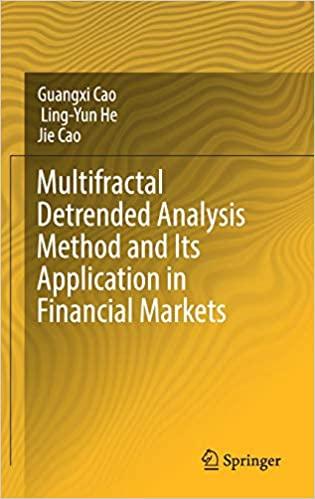Question
THE WALL STREET JOURNAL FUTURE OF BANKING LOOKS DARK - WHY THAT'S PROBLEM By GREG IP Updated Oct. 12, 2016 With the sudden resignation of
THE WALL STREET JOURNAL
FUTURE OF BANKING LOOKS DARK - WHY THAT'S PROBLEM
By GREG IP
Updated Oct. 12, 2016
With the sudden resignation of Wells Fargo and Co's. chief, John Stumpf , and the turmoil engulfing Deutsche Bank, recount a darker story. In various ways, they indicate how much harder it has ended up for banks to profit. Stock markets recommends banks aren't relied upon to acquire significantly more than what investors charge them for capital within a reasonable time-frame. Accuse absolute bottom or negative interest rate, harder direction and powerless monetary development.
An industry that can't gain more than its cost of capital is an industry bound to recoil. This matters to more than simply the banks and their shareholders. At the point when central banks facilitate the supply of credit, they depend on banks to transmit the advantages to the more extensive economy by making advances, taking care of exchanges and moving money between individuals, organizations and country. Contracting, unrewarding banks limp that transmission channel.
One telling information point is the decrease in the proportion of banks' fairly estimated worth to the esteem their books say they are worth. For instance, Bank of America Corp. what's more, Citigroup Inc., which exchanged at about twofold their book esteem before the crisis, have since exchanged beneath, as have banks in France, Germany, Japan and Italy.
That implies investors think that banks will gain negative returns for their assets, after expenses. What's more, to be sure, the Institute of International Finance, which speaks to worldwide banks, finds that since 2010, European, Japanese and U.S. banks have by and large been gaining less than their cost of capital.
Regulation is a piece of the reason. To better cradle credit misfortunes, banks should now hold more capital, for example, shareholders' value, which spreadsprofits crosswise over more shares. To manage sudden surges of assets, they should hold all the more exceedingly fluid fleeting resources, for example, Treasury charges, which procure not as much as credits. This has been exacerbated by the lazy economy, which has kept down advance development, and by money related approach. Banks benefit from the spread between the premium they charge on advances and pay to investors. Be that as it may, credit rates have been pulled down as national banks hold transient rates at or beneath zero and purchase securities and banks are hesitant to pass that on to investors by charging to hold their cash. In addition, when national banks purchase bonds, they pay with recently made money that sits on banks' accounting reports gaining nothing, or less.
Lesson Learnt:
Financial specialists should now markdown the likelihood that any bank could be one outrage far from arraignment and a devastating, multibillion-dollar fine. Banks have reacted by leaving or scaling back organizations that convey the most reputational hazard, for example, worldwide cash exchanges and issuing home loans to less trustworthy borrowers.
Advantages / Disadvantages:
The individuals who accuse a hefty portion of the economy's ills for inefficient and congested money related area will doubtlessly cheer this withdraw. Other people ought to stress. There are many advantages for reading journals or publications that it aware the investors about the current financial stability or crisis arising from the investment.
Please summary this article
Step by Step Solution
There are 3 Steps involved in it
Step: 1

Get Instant Access to Expert-Tailored Solutions
See step-by-step solutions with expert insights and AI powered tools for academic success
Step: 2

Step: 3

Ace Your Homework with AI
Get the answers you need in no time with our AI-driven, step-by-step assistance
Get Started


